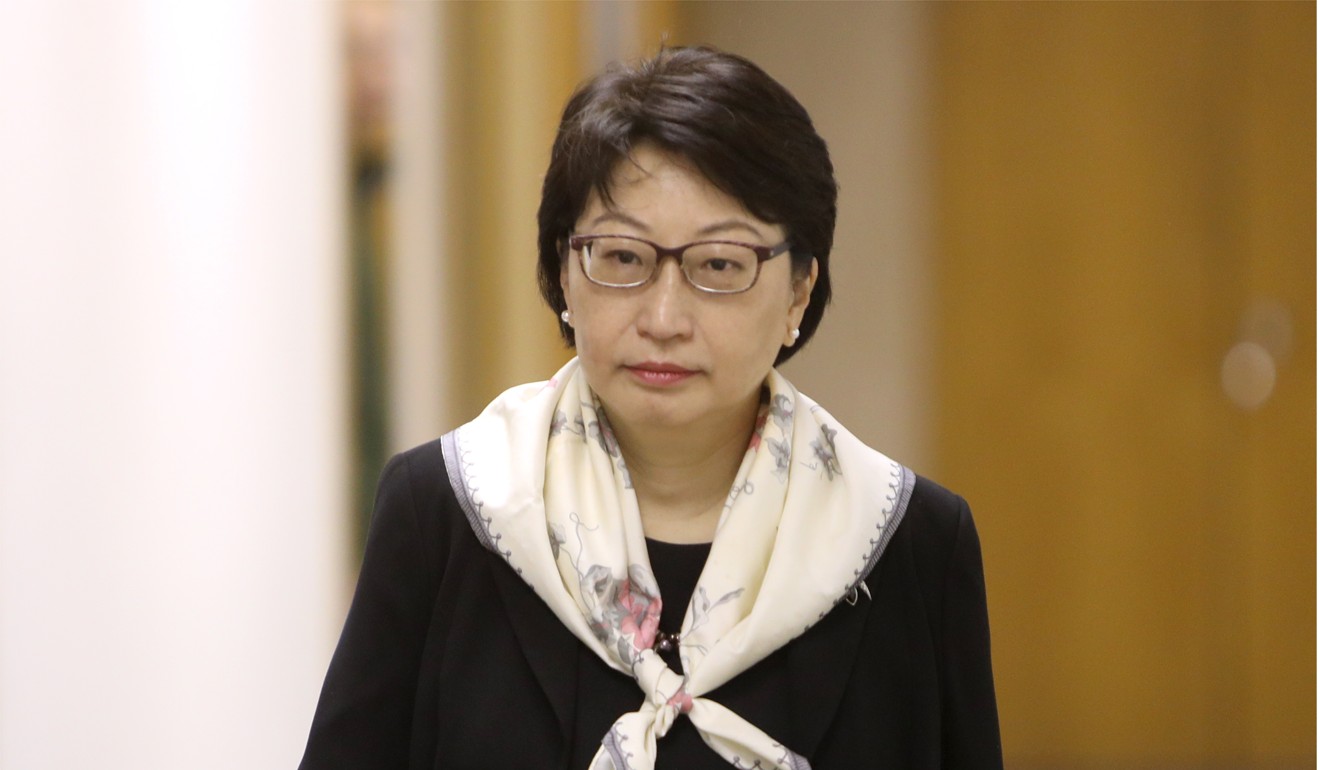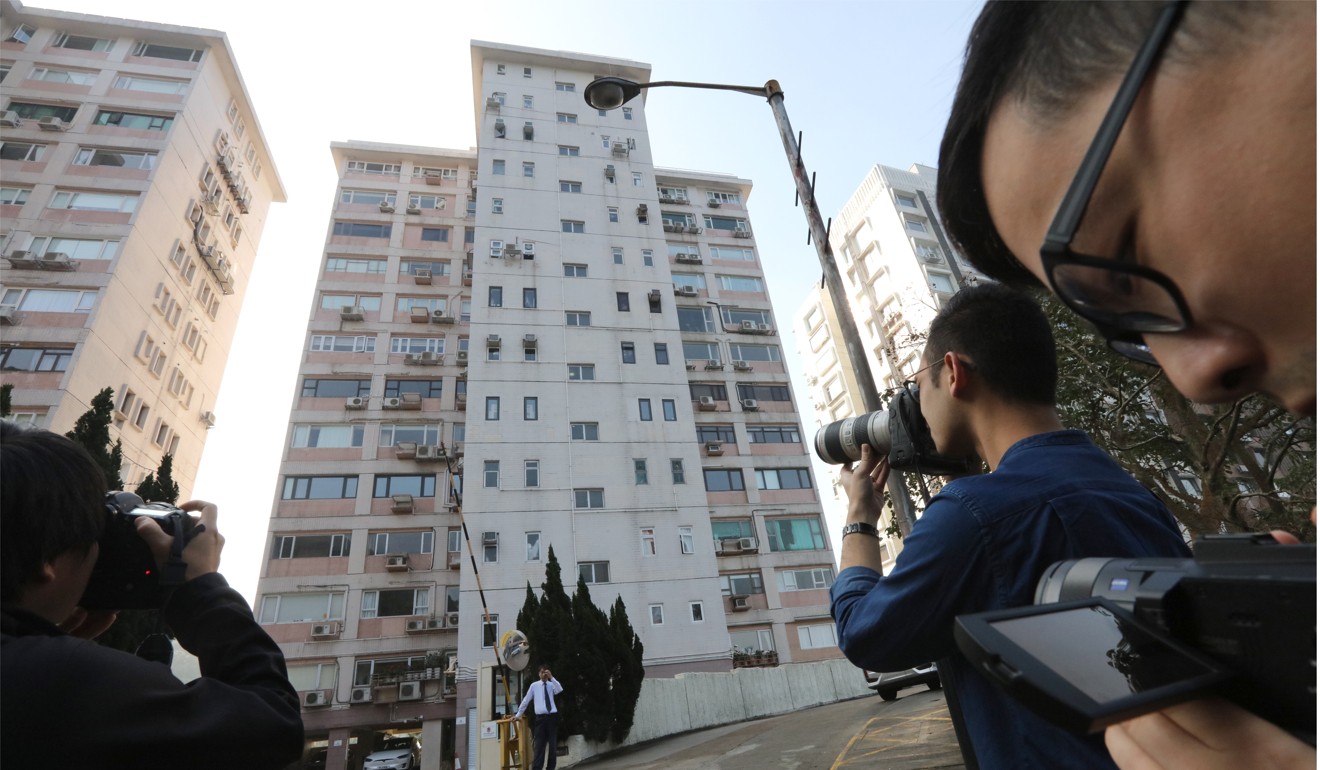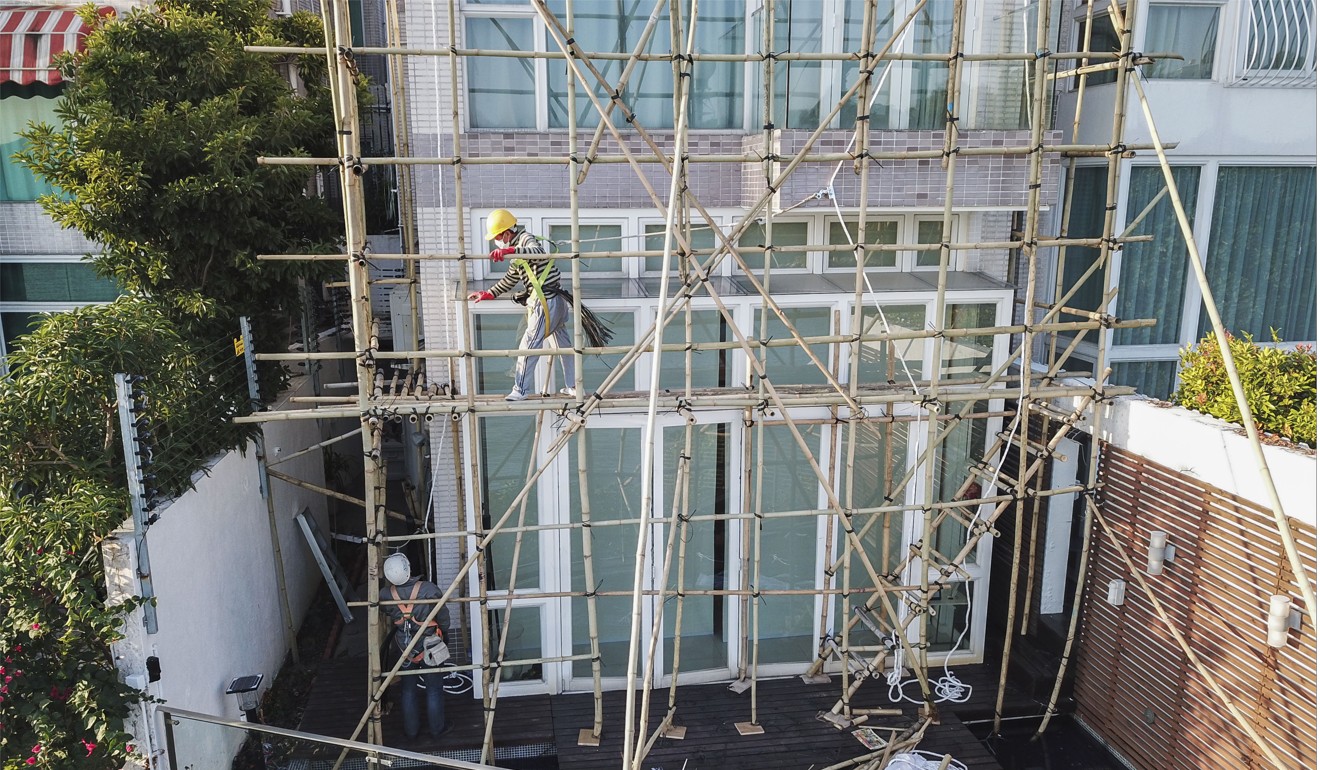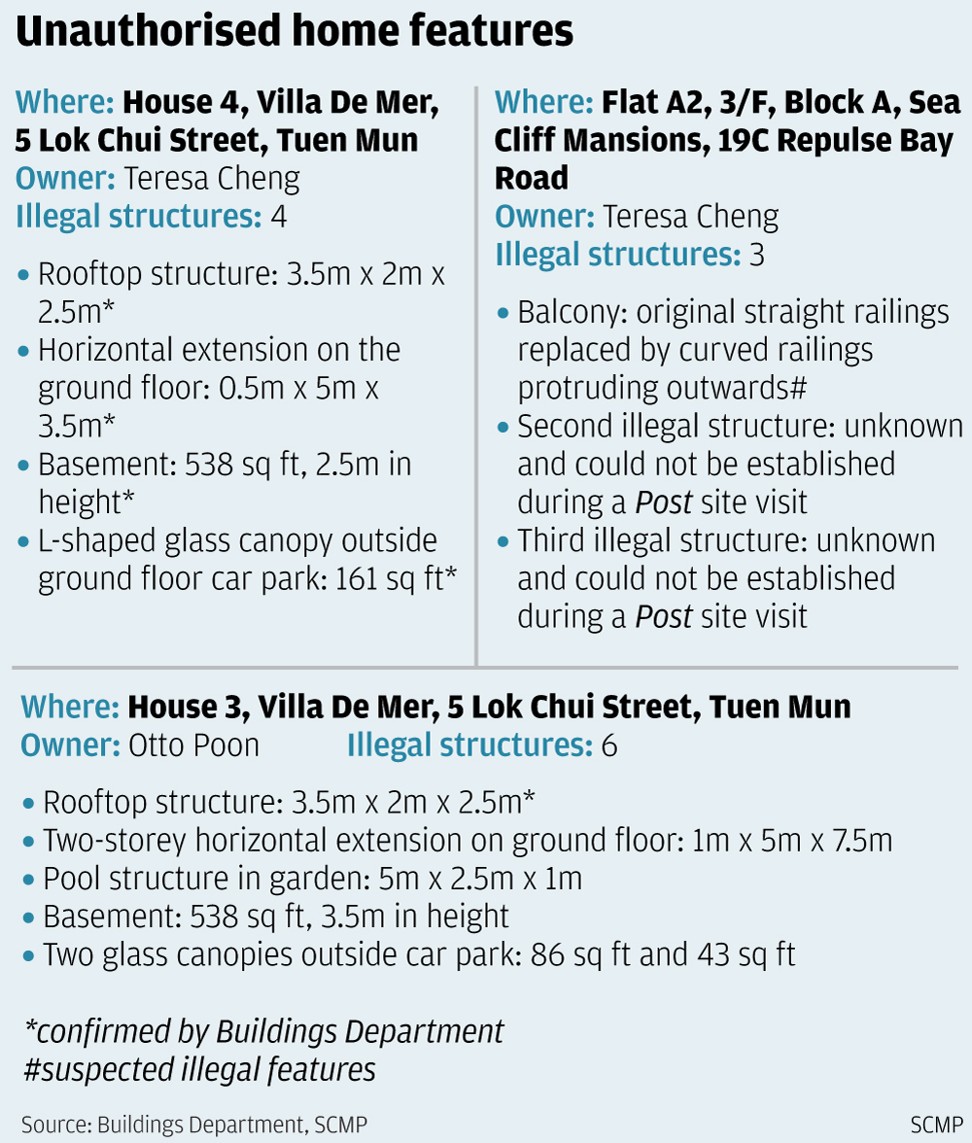
Modified balcony may be one of three illegal structures in Hong Kong justice minister’s posh Repulse Bay flat
But a surveyor told the Post that replacing balcony railings was common and the alteration looked ‘structurally sound’
A modified balcony may be one of three suspected illegal alterations to a swanky Repulse Bay property owned by Hong Kong’s embattled justice minister, according to on-site observations by the Post.
Reporters paid a visit to Teresa Cheng Yeuk-wah’s property on Monday and spotted that the balcony railings – which were straight in the original building plan – had been replaced by curved railings that protruded from the building.
While there was no application for this change in the Buildings Department’s database, a surveyor said that by looking at photos of the flat’s exterior, he believed the addition was illegal but structurally safe.

Hong Kong justice minister under fire as illegal structure revelations worsen
The government had, late on Sunday, issued a statement stating that Cheng’s property in the city’s Southern District had three unregistered alterations that were already there when she bought it.
It did not specify what they were.
From the Post’s observations, a set of south-facing windows in the Block A, Sea Cliff Mansions apartment had been enlarged but a subsequent check found that this alteration request was approved in 2008 by the Buildings Department.
The surveyor, speaking on condition of anonymity, agreed that the balcony railings appeared to be illegal after studying the approved building plan, but pointed out that the alteration was “not very significant and very common”.
“From the photos I cannot see major safety issues,” he said.
“If you look at other flats in the same building, you will see similar, if not more serious [cases of] suspected illegal structures,” he continued.

He said tearing down part of a non-structural wall to enlarge a window and replacing balcony railings were very common alterations to Hong Kong properties and often tolerated by the government because they did not involve structural changes.
One in four Hong Kong properties has illegal structures, but most owners get away with their misdeeds
“The vendor will not warrant on the legality of the relevant conditions and the purchaser is willing to accept the property on its present state and condition,” the agreement said.
These revelations were the latest bombshell to hit Cheng, who has been embroiled in controversy since the beginning of the year. She took over the city’s Department of Justice on January 6 as news emerged of 10 unauthorised extensions to her and her husband’s home in Tuen Mun’s Villa De Mer estate.
Cheng claimed the four illegal structures were already there when she bought her three-storey property in 2008.
Hong Kong leader Carrie Lam backs under-fire justice chief Teresa Cheng as mortgage deed raises new questions
The Buildings Department announced on Monday that it had approved a plan to remove three of the structures within two months. As for the removal of the fourth structure – the basement – the department said it would first need more information from Cheng’s representatives.
She owns so many flats in Hong Kong and she still needed to exploit this loophole.
The Repulse Bay flat sales and purchase agreement also revealed that Cheng paid a preferential stamp duty tax given to first-time buyers when she bought the home last September, despite owning companies that had already bought at least three other properties in Tuen Mun and Sha Tin.
The sales and purchase agreement showed Cheng paid HK$2.635 million (US$337,000), or a stamp duty of 4.25 per cent of the flat price, which is the rate that first-time buyers normally pay.
If she was not considered a first-time buyer, she would have had to pay HK$9.3 million (US$1.19 million) in stamp duty – or 15 per cent of the flat price.
Opinion: The issue of illegal structures is a time bomb, not a lack of political sensitivity
The stamp duty on property transactions for non first-time buyers was raised to 15 per cent for individuals and corporate entities in November 2016 as part of government efforts to curb speculation and tame soaring real estate prices.

Democratic Party lawmaker Lam Cheuk-ting said Cheng may well have been within her rights to claim “first-time” status and that this happened before she became justice secretary, but it exposed gaps in the system.
“Well, we all know she’s great with numbers,” he said. “She owns so many flats in Hong Kong and she still needed to exploit this loophole.”
Avoid hefty stamp duty in Hong Kong by buying property in the parent’s name
But businessman and Centaline Property Agency founder Shih Wing-ching said this was no different from many property owners in the city acquiring homes using a parent or child’s name so they could get a preferential stamp duty tax rate as a first-timer.
“Hong Kong is a capitalist economy,” he added. “There is clear separation of entities between a limited liability company and an individual.”



